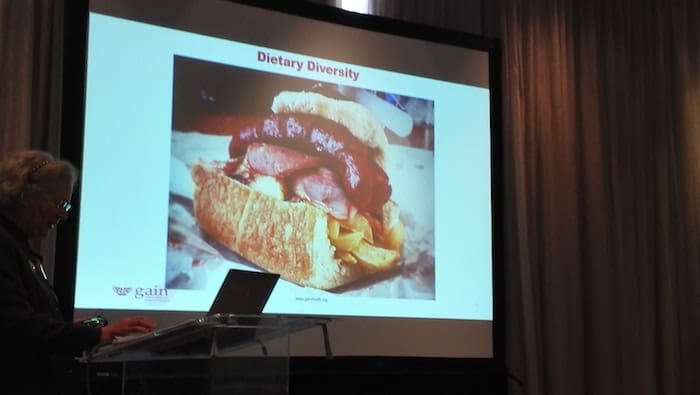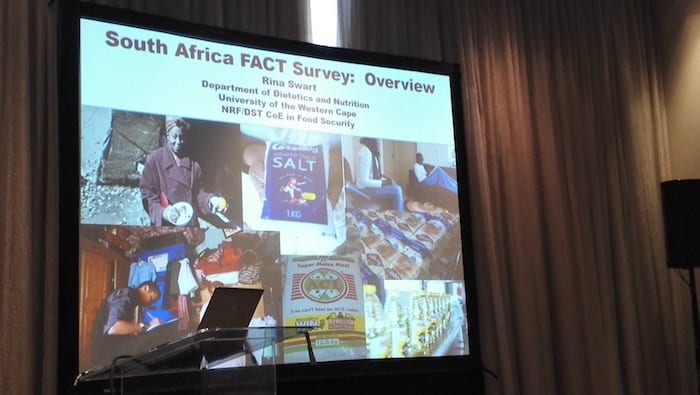
The FACT Fortification Survey workshop was held on 3 June 2016 at the Radisson Blu Gautrain Hotel to disseminate findings of the FACT Fortification Survey completed in 2015.

Professor Rina Swart of UWC's School of Public Health exaplaining the objectives of the workshop, among which was to provide a brief overview of the micronutrient malnutrition situation in South Africa and create an opportunity for discussion and debate on the Policy, Program and Research Implications of FACT results and Actions needed.
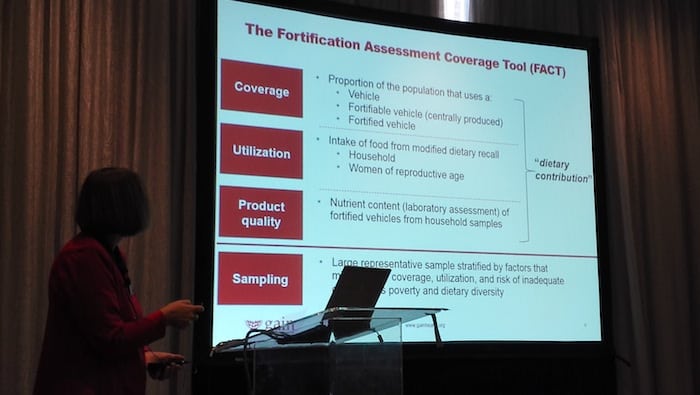
The Fortification Assessment Coverage Tool (FACT) is a survey instrument that was developed by the Global Alliance for Improved Nutrition (GAIN) for carrying out coverage assessments of both population-based (staple food) and targeted (infant and young child) fortification programs.
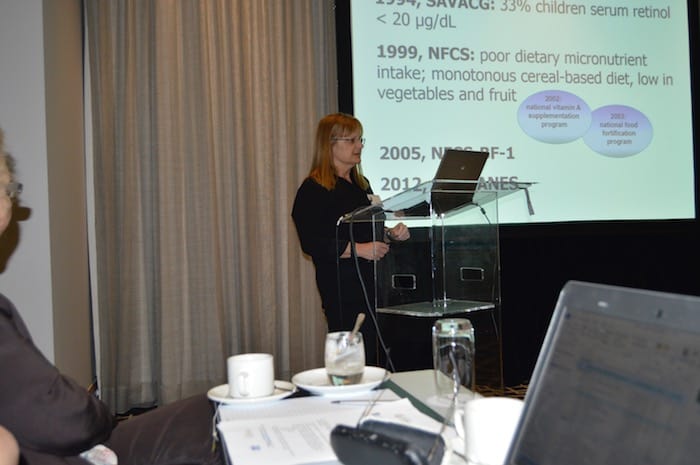
Dr Mieke Faber of the South African Medical Research Council gave an overview of micronutrient malnutrition in South Africa
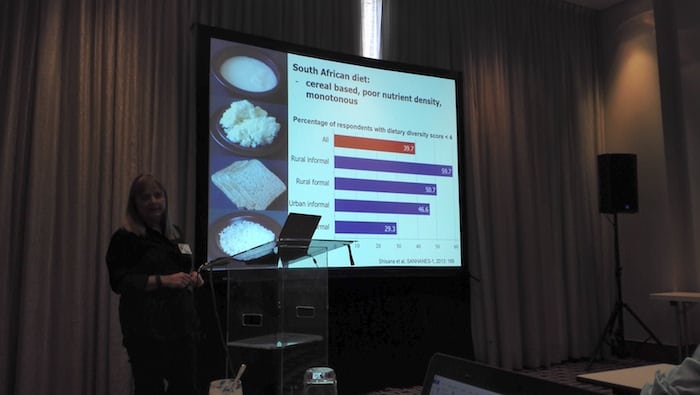
Currently, there is a lack of current information available on how well these programs are performing, household coverage and intake of fortified foods, and if vulnerable populations are being reached.

Maude de Hoop of the National Department of Health presented an overview of mandatory fortification in South Africa

Fortification has shown to have impact and contributed to reduction in: Vitamin A deficiency, Iron deficiency in women by 65.6% as well as Iron deficiency anaemia in children < 5 years by 83%
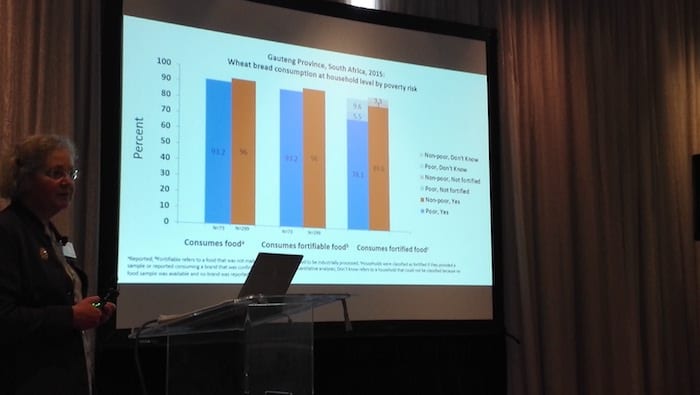
The large‐scale fortification program is working and making valuable contributions to dietary intakes of nutrients, but there is still room for improvement.


